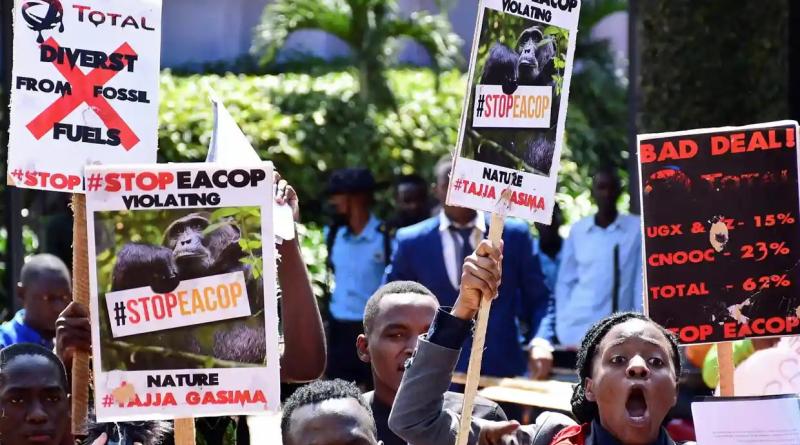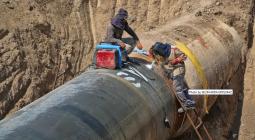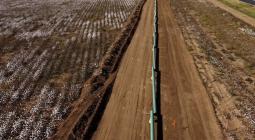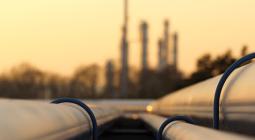‘Monstrous’ east African oil project will emit vast amounts of carbon, data shows

Experts say crude oil pipeline from Uganda to Tanzania will produce 25 times host nations’ combined annual emissions
An oil pipeline under construction in east Africa will produce vast amounts of carbon dioxide, according to new analysis. The project will result in 379m tonnes of climate-heating pollution, according to an expert assessment, more than 25 times the combined annual emissions of Uganda and Tanzania, the host nations.
The East African crude oil pipeline (EACOP) will transport oil drilled in a biodiverse national park in Uganda more than 870 miles to a port in Tanzania for export. The main backers of the multibillion dollar project are the French oil company TotalEnergies and the China National Offshore Oil Corporation (CNOOC).
Environmental assessments by the EACOP consortium were approved by the host governments, but only the construction and operation of the pipeline were considered.
The new analysis, by the Climate Accountability Institute (CAI), found construction and operation contributed only 1.8% of the full emissions of the project when taking into account overseas transport, refining and burning of the 848m barrels of oil by end users. It considered the 25-year lifespan of the project and refining in Europe and China. In the years of peak oil flow, the associated emissions would be more than double those of Uganda and Tanzania in 2020.
Richard Heede, at CAI, said: “It is time for TotalEnergies to abandon the monstrous EACOP that promises to worsen the climate crisis, waste billions of dollars that could be used for good, bring mayhem to human settlements and wildlife along the pipeline’s path.”
Heede described EACOP as a “mid-sized carbon bomb”. In May, the Guardian revealed that world’s biggest fossil fuel firms were quietly planning scores of carbon bomb oil and gas projects that would drive the climate past internationally agreed temperature limits, with catastrophic global impacts.
Omar Elmawi, coordinator of the Stop EACOP campaign, said: “EACOP and the associated oilfields in Uganda are a climate bomb that is being camouflaged us as an economic enabler to Uganda and Tanzania. It is for the benefit of people, nature and climate to stop this project.”
TotalEnergies said that, as a pipeline project, “EACOP is neither the legal owner of the oil nor is it the ultimate end user”. It said environmental assessments followed national regulations and that an updated analysis, including oil use, had been performed, but did not provide details.
CNOOC did not respond to a request for comment.
A number of financial institutions, including previous backers of TotalEnergies, have said they would not finance EACOP. These include 24 banks and 18 insurance companies.
Some African countries argue they have the right to use fossil fuels to grow their economies, as rich western nations have done. In September, EU lawmakers called for EACOP to be stopped, prompting Uganda’s president, Yoweri Museveni, to respond: “They are insufferable, so shallow, so egocentric, so wrong.”
Africa’s fossil fuels, and the question of whether and how countries can exploit them, is likely to be a flashpoint at November’s Cop27 UN climate summit.
The International Energy Agency said in 2021 that no new oil and gas fields could be built if the world was to stay within safe limits of global heating. A report published this week found a “large consensus” across all published studies that developing new oil and gas fields was “incompatible” with the 1.5C climate target.
COVER PHOTO: Ugandan activists in Kampala protesting against the construction of the East African crude oil pipeline earlier this month. Photograph: Abubaker Lubowa/Reuters





